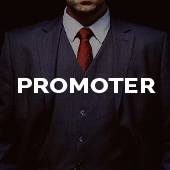LAS VEGAS – There are distinct impressions the new TKO boxing promotion is seeking to convey as it announces its arrival with a Netflix-streamed super-fight on Saturday between four-division champions Canelo Alvarez and Terence Crawford at Allegiant Stadium.
“Here to save boxing” is a big part of it.
Questioning that spin at Thursday’s news conference was a video reporter and Alvarez himself.
In an over-the-top water-carrying display, TKO/Ring Magazine broadcaster Max Kellerman spoke of how UFC CEO and TKO frontman Dana White will take boxing to new heights given his history of promoting the UFC under the ownership of Lorenzo Fertitta and now Endeavor.
“Dana White is the greatest combat sports promoter in my lifetime. Boxing’s not as popular as it used to be. UFC is really popular and that’s because of Dana White,” Kellerman roared to fans.
“You want an NBA or NFL in boxing? Here it comes. Because [White] knows how to build an institution. And how do you do that?”
Kellerman was then interrupted by Alvarez.
“Hey Max, boxing has always been big. Don’t say boxing is not big enough. Boxing is big. You know how big boxing is,” Alvarez countered. “Boxing is always big [and getting] bigger and bigger. We can talk about that too. I respect that other sport [UFC]. Great job. But boxing is boxing.”
“No lies,” added Crawford.
Kellerman then tried to mention the names of Saudi Arabia’s boxing financier Turki Alalshikh and WWE head Nick Khan as the crowd jeered.
“Guys, this is who’s bringing you the event,” Kellerman pleaded.
Yet, everyone knows the sport exists only because of the fighters.
Mexico’s Alvarez has been staging Cinco de Mayo and Mexican Independence weekend cards for the past dozen years in Las Vegas with the support of HBO, Showtime, DAZN, and American promoters Oscar De La Hoya and Al Haymon’s Premier Boxing Champions.
Presumably fresh in Alvarez’s mind are the events of one year ago, when Alalshikh sponsored a UFC event at Sphere in Las Vegas on the same night as Alvarez’s title defense in a PBC pay-per-view against Edgar Berlanga, vowing he would “eat” Alvarez in ticket sales and viewership.
He was wrong.
As TKO and Alalshikh now stage Alvarez’s defense of his undisputed super middleweight title versus pound-for-pound elite Crawford, it offers potential for a sea change in the sport. What is known is that TKO/Zuffa Boxing expects to stage 12 to 14 fight cards in 2026 featuring freshly signed prospects in addition to a smaller handful of big-ticket cards.
“Basically, in 2026, I’m going to start my show, and what I’m going to do is basically like [the UFC’s] ‘Contender Series,’” White told PBS Las Vegas recently. “The best will fight the best, undefeated guys will fight undefeated guys, and what you will do is you will care about the first fight of the night and not just the main event.
“So I will build stars, put on great fights and then these guys will graduate and fight with [Alalshikh].”
Feeling that it needs to tweak the way boxing operates because of lost television deals, few mainstream athletes and an inconsistent fight schedule, one of TKO’s boldest efforts is to revise the federal regulations that forbid promoters from ranking fighters and awarding belts - something White will likely need lobbying support from his friend President Donald Trump to attain congressional approval.
Since Thursday marked one of the first opportunities to question White about that push, video journalist Sean Zittel stepped up during the question-and-answer session and addressed the matter, noting that the top five boxing gates of all time have occurred during the past 10 years.
“Why then do you want to make sweeping changes to the [Professional Boxing Safety Act of 1996] that is meant to protect fighters to bring about a [UFC-type] business model that currently has your company [UFC] already paying out $375 million in anti-trust lawsuits and has two potential pending class-action lawsuits as well?” Zittel asked.
While TKO is presenting its package as a lift to fighter pay, medical coverage and drug testing, others view it as a tactic aimed at controlling fighters’ careers for extended periods.
“Well, this is obviously a long discussion,” White said. “If you want to talk to me about that, set up an interview. This isn’t about me and my business. This is about these two guys Saturday night.”
When Zittel followed up asking about a California State Athletic Commission meeting marred by heated objection to commission leaders’ interest in supporting the TKO plan, White accused Zittel of trying to “showboat” before again asking him to “set up an interview with me.”
Plenty would argue that this was the opportune time to explain his company’s mission considering how many were listening.
Regardless, Zittel pressed on: “If TKO can’t make those [federal law] changes, will you still invest in the sport of boxing? Will you compete in the market?”
White responded, “If you want to be an asshole, let’s do it in private.”
Alvarez chanted, “Fight! Fight! Fight!”
TKO’s position is that if it’s going to enter the boxing space it wants to escape what it assesses as a sinking business model by changing the paradigm, creating a Unified Boxing Organization [UBO] for its fighters to perform under in the new regulations.
Sanctioning bodies that extract three per cent cuts from title fights would be excluded from applying tolls in the TKO UBO, but could still operate for the other promoters.
The feeling that the federal regulation revision is necessary is prompted by the TKO assessment that existing regulations are too vague and could lead to either lawsuits or challenges that will disallow a TKO UBO without the revisions being made.
Why feed into a system that the company believes has contributed to its decline?
“This is a thoughtful solution that preserves the original Ali Act of 2000 while providing boxers with access to more choices and opportunities, greater health and safety protections, and better pay for up-and-coming fighters,” a TKO spokesman said. “We are proud to support [this] in the effort to help restore boxing to its rightful place of prominence in America.”
The TKO promotion will receive $10 million annually from Alaklshikh, whose arrival two years ago has inflated fighter purses and created an impressive slate of title bouts that have crowned undisputed champions at heavyweight [Oleksandr Usyk], light-heavyweight [Dmitry Bivol], super-middleweight [Alvarez] and showcase events for gifted young champions Shakur Stevenson, Rolly Romero and Teofimo Lopez.
The abrupt power moves have coincided with market upheaval that has limited the sport on American television in unprecedented ways as a formerly vibrant British boxing scene is diminished.
In addition to the recent departure of Showtime and ESPN from world-championship and pay-per-view fight coverage, British promoters Frank Warren and Eddie Hearn have transported many bouts to the Middle East for Alalshikh with one U.K.-based world champion remaining, Nick Ball.
BoxingScene asked several industry leaders to assess the sport’s changing landscape.
“To me, [Alalshikh] is another wealthy guy with an affection for the sport,” veteran U.S. promoter and International Boxing Hall of Fame member Lou DiBella said. “Turki clearly loves boxing and he may be capable of running it for a while, but you can’t run the Wild West, and anyone making pronouncements that he’s taking over is full of shit.
“I’ve gotten philosophical in watching this sport become niche. Everyone’s a whore. Everyone wants a bag. But it’s too soon to know how this plays out. We know the old system failed. Boxing put itself in this position to be marginalized. You don’t need a conspiracy here when the greatest conspiracy of all was not working together, failing the sport.”
U.S. promoters Top Rank (headed by Bob Arum), PBC and De La Hoya’s Golden Boy Promotions have set aside prior business rivalries for the common ground of cashing in by lending talent to Alalshikh’s events.
But the U.S. promoters will likely be united against supporting White and TKO, with one promising more cross-promoted cooperation to keep their fighters allegiant to their respective promotional stables.
“I don’t think he’s really interested in taking over the sport. There’s no evidence of that,” Arum said of Alalshikh. “There’s too many promoters, too many events. It’s a business: He’s offered all of our fighters good deals, but our fighters are under contract. I don’t want to dramatize it like it’s a war because it isn’t and I don’t agree with these alarmists because I don’t think [a takeover] is their goal.”
Yet, some look at how Alalshikh has ingratiated himself by guaranteeing record purses to young talents like Top Rank’s young standouts, welterweight champion Brian Norman Jnr and WBO lightweight challenger Abdullah Mason, and PBC’s light-heavyweight champion David Benavidez, and foresee him stockpiling them on the future major cards based on his deep pockets.
ESPN ended its eight-year relationship with Top Rank over the summer.
And with TKO’s parent company Endeavor well-connected to networks thanks to Hollywood entertainment leaders Ari Emanuel and Khan, there’s expectation TKO’s Zuffa Boxing will land the most significant broadcast/streaming deal of all.
“That’s how the big boys in the big house play ball,” one promoter said. “Everything is just conquer, conquer.”
White’s UFC struck a seven-year, $7.7 billion deal with Paramount starting next year.
“They’ve exerted control because TV budgets control everything,” another promoter said. “Arum is wrong. You can have contracts on the fighters, but if you lose TV – therefore the ability to pay them – those contracts will be gone quick. There is a choke point where [Alalshikh] can grab the whole thing.”
Even though TKO maintains it’s not calling for unilateral control, the industry fear of a universal power grab is stark.
This week, WBO President Sulaiman expressed dismay that, with their four belts all on the line, the sanctioning bodies had no guarantee of credentials to attend the fight and present their various belts to the Alvarez-Crawford winner.
Sulaiman’s organization created a special commemorative belt, a first-of-its-kind championship ring and even a mini-statue of Alalshikh for the fight. In one social media video sequence Tuesday, Sulaiman was shown demonstrably asking questions of Alalshikh.
“[These two years] have been a death march off a cliff,” one promoter said. “All the promoters, all the sanctioning bodies. Now, here they go … they are ready to show their true colors by kicking out the other promoters and sanctioning bodies. Their plan is finally coming to fruition.
“There’s never been more unrest in the industry of boxing. It’s a hostile takeover attack from them wanting nothing to do with the prior people involved in boxing … managers, sanctioning bodies and promoters, get out. When they hatched this plan, it was, ‘Play them along until the moment he … walks into the sunset with a UFC-like dictatorship.’”
Lance Pugmire is BoxingScene’s senior U.S. writer and an assistant producer for ProBox TV. Pugmire has covered boxing since the early 2000s, first at the Los Angeles Times and then at The Athletic and USA Today. He won the Boxing Writers’ Association of America’s Nat Fleischer Award in 2022 for career excellence.




